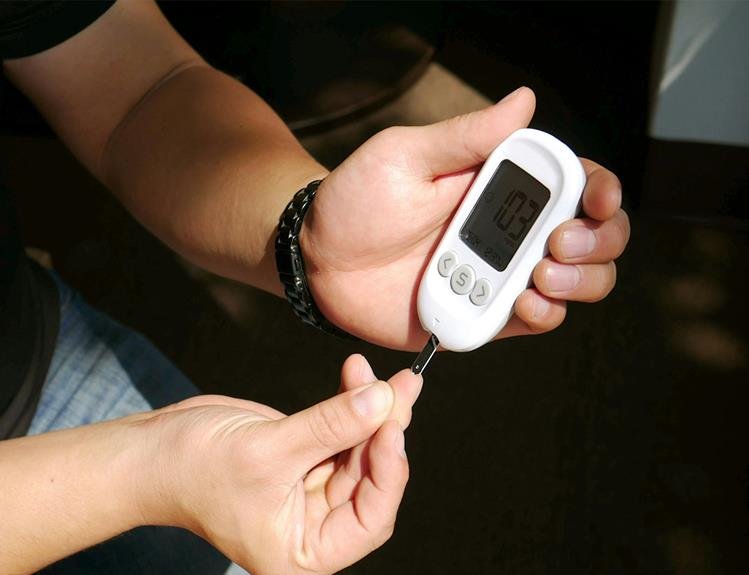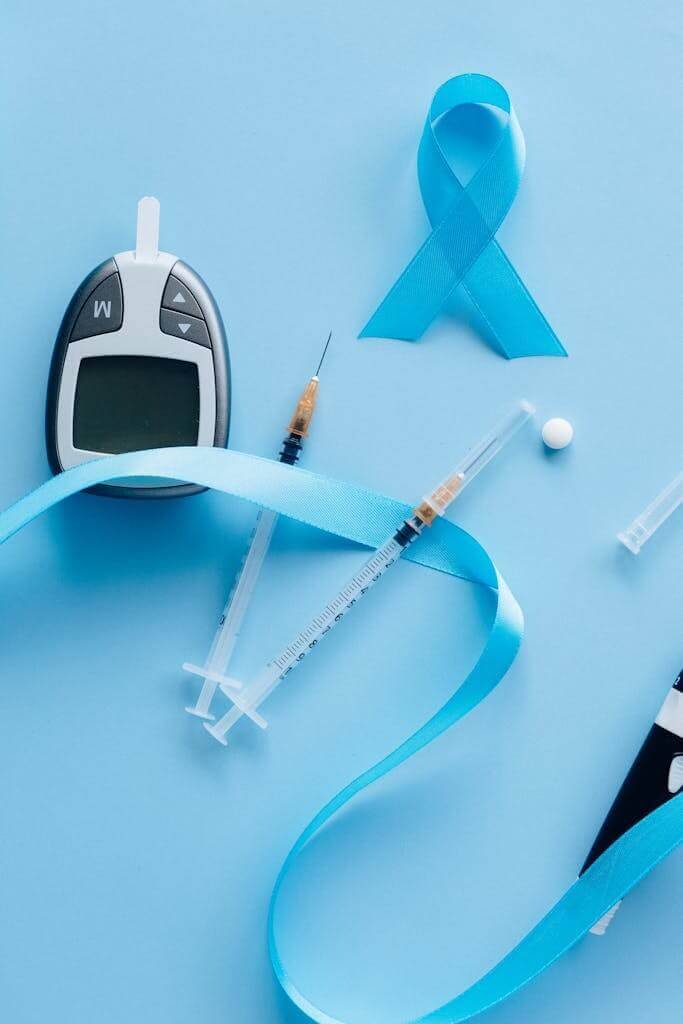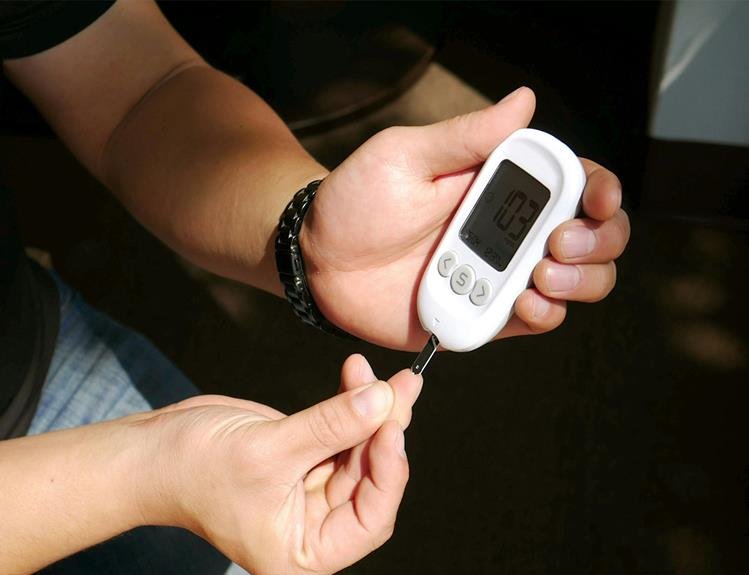Debunking Common Myths About Prediabetes and Diabetes
Have you ever wondered if all the information you hear about prediabetes and diabetes is accurate?
The world of these conditions is often clouded with misconceptions and myths that can lead to confusion and misinformation.
However, by shedding light on these fallacies, you can gain a clearer understanding of what is true and what is not when it comes to managing and preventing prediabetes and diabetes.
Risk Factors for Prediabetes and Diabetes
If you lead a sedentary lifestyle and consume excessive sugary drinks, you're at heightened risk for developing prediabetes and diabetes. Lack of physical activity coupled with high sugar intake can disrupt your body's ability to regulate blood sugar levels effectively. When you don't engage in regular exercise, your muscles become less sensitive to insulin, the hormone responsible for transporting glucose from the blood into cells for energy. This insulin resistance can lead to elevated blood sugar levels, increasing the likelihood of developing prediabetes, a condition where blood sugar levels are higher than normal but not yet high enough to be classified as diabetes.
Furthermore, sugary drinks can contribute to weight gain and an increased risk of developing type 2 diabetes. These beverages are packed with empty calories, causing quick spikes in blood sugar levels. Over time, this constant influx of sugar can strain the body's insulin production and lead to insulin resistance. By reducing your sedentary time and limiting sugary drink consumption, you can significantly lower your risk of developing prediabetes and diabetes.
Dietary Myths and Truths
To better manage prediabetes and diabetes, understanding dietary myths and truths is essential in maintaining healthy blood sugar levels and overall well-being. One common myth is that you must completely avoid carbohydrates to control blood sugar. In reality, it's more about choosing the right kind of carbohydrates, like whole grains, fruits, and vegetables, which can actually help manage blood sugar levels.
Another myth is that all fats are bad for you. While trans fats and saturated fats should be limited, unsaturated fats like those found in nuts, seeds, and avocado are beneficial for heart health and can be part of a balanced diet for managing diabetes.
It's also important to know that consuming excessive amounts of sugar directly causes diabetes. While sugary foods should be consumed in moderation, diabetes is a complex condition influenced by various factors including genetics, lifestyle, and overall diet.
Exercise and Its Impact
You may wonder how exercise can benefit prediabetes and diabetes.
Regular physical activity plays a crucial role in managing blood sugar levels and improving insulin sensitivity.
Understanding the impact of exercise on these conditions is key to taking control of your health.
Exercise Benefits Prediabetes
Regular physical activity plays a crucial role in improving the health outcomes of individuals with prediabetes by positively impacting their blood sugar levels. When you engage in activities like walking, cycling, or swimming, your muscles use more glucose, which helps to lower blood sugar levels. Exercise also makes your cells more sensitive to insulin, the hormone that helps regulate blood sugar.
Role of Physical Activity
Improving your health outcomes through physical activity involves engaging in exercises that positively impact blood sugar levels and insulin sensitivity. Regular exercise helps your body use insulin more efficiently, lowering your blood sugar levels. It also aids in weight management, reducing the risk of developing type 2 diabetes.
Physical activity can improve your overall cardiovascular health, lowering the chances of heart disease, a common complication of diabetes. By staying active, you can boost your energy levels, improve your mood, and enhance your quality of life.
Aim for a combination of aerobic exercises like walking or cycling and strength training activities to maximize the benefits for your prediabetes or diabetes management.
Managing Diabetes Through Exercise
Engaging in regular physical activity plays a crucial role in managing diabetes by improving blood sugar control and insulin sensitivity. Exercise helps your body use insulin more effectively, allowing glucose to enter your cells for energy. It also aids in reducing overall blood sugar levels and can contribute to weight loss or maintenance, which is beneficial for managing diabetes.
Additionally, physical activity can lower your risk of heart disease, improve circulation, and enhance your overall well-being. Aim for a mix of aerobic exercises like walking, cycling, or swimming, along with strength training exercises to build muscle and improve metabolism.
Remember to consult with your healthcare provider before starting any new exercise regimen to ensure it aligns with your specific health needs.
Blood Sugar Monitoring Misconceptions
Misconceptions surrounding blood sugar monitoring can lead to unnecessary confusion and anxiety for individuals managing prediabetes or diabetes. One common misconception is that only people with diabetes need to monitor their blood sugar levels. In reality, individuals with prediabetes can benefit greatly from monitoring their levels to track changes and make necessary lifestyle adjustments.
Another misconception is that blood sugar monitoring is a complex and painful process. With advancements in technology, there are now various user-friendly devices like glucose meters and continuous glucose monitors that make monitoring convenient and virtually painless.
Some individuals believe that as long as they feel fine, there's no need to monitor their blood sugar levels regularly. However, the symptoms of fluctuating blood sugar levels may not always be immediately noticeable, emphasizing the importance of consistent monitoring.
Lastly, some may think that monitoring is only necessary when taking medication for diabetes. Regardless of medication use, monitoring blood sugar levels regularly is crucial for effectively managing prediabetes or diabetes and preventing complications.
Medication and Treatment Facts
Monitoring your blood sugar levels regularly is essential for effectively managing prediabetes or diabetes, but understanding the facts about medication and treatment is equally crucial for your overall health. If you have been prescribed medication for prediabetes or diabetes, it's important to take it as directed by your healthcare provider. Some common medications include metformin, sulfonylureas, or insulin, each working in different ways to help regulate blood sugar levels.
It's vital to remember that medication is just one part of the treatment plan for prediabetes or diabetes. Lifestyle modifications, such as maintaining a healthy diet, engaging in regular physical activity, and managing stress, are also key components in managing the condition effectively. Your healthcare provider will work with you to create a comprehensive treatment plan that may include a combination of medication and lifestyle changes to help you manage your condition and prevent complications. Remember to communicate openly with your healthcare team about any concerns or difficulties you may have with your medication or treatment plan.
Lifestyle Modifications for Prevention
To effectively prevent prediabetes or diabetes, prioritize making lifestyle modifications such as maintaining a balanced diet and engaging in regular physical activity. A balanced diet rich in fruits, vegetables, whole grains, lean proteins, and healthy fats can help regulate blood sugar levels and promote overall health. Limiting the intake of sugary beverages, processed foods, and high-fat meals can also play a significant role in preventing the onset of prediabetes or diabetes.
Incorporating regular physical activity into your routine is crucial for managing weight, reducing insulin resistance, and improving heart health. Aim for at least 150 minutes of moderate aerobic activity per week, such as brisk walking, cycling, or swimming, along with strength training exercises on two or more days. Finding activities you enjoy can make it easier to stay motivated and consistent with your exercise regimen.
Frequently Asked Questions
Can Prediabetes and Diabetes Be Completely Reversed With Lifestyle Changes?
You can effectively manage prediabetes and sometimes even reverse it through lifestyle changes like healthy eating and regular exercise. Diabetes can also be controlled with these adjustments, although complete reversal is not always possible.
Is It True That Only Overweight or Obese Individuals Are at Risk for Developing Prediabetes and Diabetes?
Hey there, it's a common misconception that only overweight folks are at risk for prediabetes and diabetes. In reality, anyone, regardless of weight, can develop these conditions. Regular check-ups and healthy habits are key.
Are There Any Specific Foods That Can Cure or Prevent Prediabetes and Diabetes?
You can't cure or prevent prediabetes and diabetes with specific foods alone. A balanced diet, regular exercise, and medical guidance are key. Focus on whole foods, fruits, vegetables, lean proteins, and whole grains to manage your health.
Can Intense Exercise Worsen Blood Sugar Levels in Individuals With Prediabetes or Diabetes?
When you push hard in your workouts, your blood sugar might spike temporarily, but overall, intense exercise is beneficial for managing prediabetes and diabetes. It helps improve insulin sensitivity and can lead to better glucose control.
Are There Any Natural Remedies or Alternative Treatments That Can Effectively Manage Prediabetes and Diabetes Without Medication?
You can manage prediabetes and diabetes naturally through lifestyle changes. Focus on a balanced diet, regular exercise, stress management, and sufficient sleep. These habits can help control blood sugar levels and improve overall health.
Conclusion
Just like the caterpillar transforms into a butterfly, debunking myths about prediabetes and diabetes can help you spread your wings and soar towards a healthier future.
By understanding the risks, truths about diet and exercise, monitoring blood sugar effectively, and seeking appropriate treatment, you can take control of your health and prevent complications.
Remember, knowledge is power – arm yourself with accurate information and watch yourself blossom into a healthier version of you.




